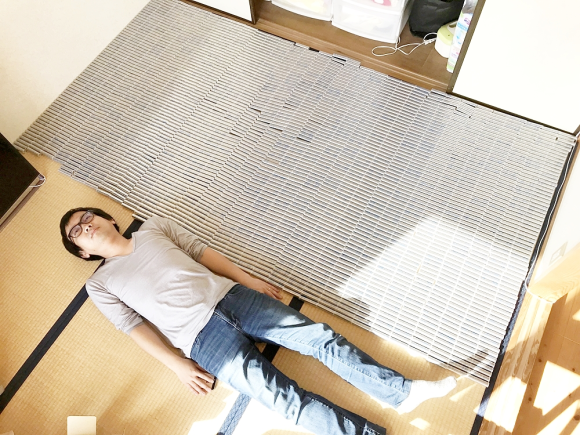
Nothing says “Thanks for all your hard work!” like a bonus from your boss given entirely in Japan’s smallest-denomination coins.
Just over two years ago, Yoshio, founder and president of SoraNews24, made the questionable decision to drop one million yen (US$8,930) on end-of-the-year lottery tickets. As you might expect, that didn’t turn out to be the wisest investment, and ever since we try to keep an eye on his expenditures at this time of year.
So Ahiru Neko, one of our Japanese-language correspondents, was a little concerned when Yoshio asked him to accompany him to the bank to make a withdrawal. As they walked, Ahiru Neko delicately broached the subject of the lottery fiasco, and was relieved to find out that Yoshio’s new plan didn’t require nearly so much money, and had nothing to do with gambling.
“The staff has been working hard all year, and I want to give them otoshidama,” explained Yoshio. Otoshiodama are gifts of cash, usually placed in festive envelopes, that are given at New Year’s in Japan. Usually, kids get them from their parents and older relatives, so Ahiru Neko was both surprised and happy to hear that he and his coworkers were getting otoshidama from the boss.
As they reached the bank entrance, Yoshio told Ahiru Neko that he was going inside to get 100,000 yen (US$893) to divide amongst the staff’s otoshidama. He instructed Ahiru Neko to wait outside, and disappeared into the building for about 20 minutes, which would have been a long time for a simple ATM run. But Yoshio had to speak with a teller to get the money for everyone’s otoshidama, because…
…he’d asked for the 100,000 yen…
…in coins.
▼ 100,000 yen in bills
▼ 100,000 yen in coins
What’s more, Yoshio had insisted on the smallest denomination: one-yen coins. Of course, you can’t expect a bank to comply with your request if you just roll up and ask for 100,000 coins in boxes, so Yoshio had called ahead and given the bank time to get everything in order before he swung by to pick it all up, because while he may be nuts, he’s also considerate.
But you know how when you get money out of the ATM, you still want to flip through the bills to make sure you got the right amount? Yoshio felt the same way here, and so he and Ahiru Neko headed back to Yoshio’s house to count the change.
Each of the 40 boxes was supposed to contain 50 rolls of coins, with 50 coins in each roll. Even Yoshio wasn’t crazy enough to count out each and every one-yen coin by hand, though, so he settled for counting just the rolls, laying them out carefully, one by one, on the tatami floor of his house.
Needless to say, this took quite a long time. But as Ahiru Neko assisted his employer, he gradually felt a sense of calm from the repetitive yet visually pleasing task.
There was a certain feeling of orderly peace, and the sight of all the coins even began to take on a unique beauty.
“Wow, I don’t know when I’ll ever get to see something like this again,” mused Ahiru Neko as they set down the last roll of coins, to which Yoshio replied, dryly and immediately:
“Yep. Okay, pack ‘em back up and let’s take the boxes over to the office.”
The nearest parking lot is still a few blocks’ walk from our office entrance, so Yoshio once again loaded up his handcart, insisting that Ahiru Neko (to whom he’d given an imitation police uniform) stand guard/at attention during the last leg of the coins’ journey.
After taking the elevator up to our floor, Yoshio wheeled the cart into our conference room while Ahiru Neko gathered the staff that was on-hand that day, letting them know that he had a present for them all.
“Thank you all for coming in today,” Yoshio began. “You’ve all been working really hard, so I decided to give you 10,000 yen each as otoshidama.”
The staff was all smiles at the news. Wanting to keep he good vibes flowing, with a flourish Yoshio pulled back the cover, ready to see their faces light up with even more joy.
▼ “So, thank you…”
▼ “…for all…”
▼ “…your hard work!”
But instead of roaring cheers, Yoshio’s grand display of grandiose generosity was met with deafening silence.
You can’t entirely blame the recipients for being quiet. Seriously, what words can properly express the almost entirely counter-balancing emotions of gratefulness at receiving 10,000 yen, and exasperation at being given it entirely in one-yen coins?
Meanwhile, Yoshio was as silent as his employees, with a dark shadow passing over his expression.
Eventually, though, it was our boss that broke the silence, saying:
“You bunch of ingrates! Do you know how much money I had to spend on this?”
As you’ve probably noticed, SoraNews24 isn’t a hard-core mathematics research organization. Still, the recipients of Yoshio’s otoshidama “kindness” were sharp enough to know that 100,000 yen in coins is worth 100,000 yen, so that’s how much money Yoshio had spent, right?
Wrong.
Remember how we said Yoshio had contacted the bank in advance to give them time to get all those coins together? Gathering the necessary coins and packaging them required a service charge, which ended up being 86,400 yen.
So in the end, Yoshio’s thoughtful (we think…) gesture of giving the staff 100,000 yen had a total price tag of 186,400, only about half of which they actually received.
Still, what was done was done, and so Yoshio solemnly handed out the boxes, before retreating to the balcony to sulk and repent.
We feel kind of bad for him, especially considering that he could have just sent everyone their otsohidama using the line social media app, which has a special otoshidama present system.
Image: Line
Still, whether it’s in coins or paper money, 10,000 yen is 10,000 yen. So thanks, Boss, but if we’re being completely honest, we’re already worrying about how you’re going to celebrate next New Year’s.
Top image ©SoraNews24
Insert images ©SoraNews24 (unless otherwise noted)
[ Read in Japanese ]

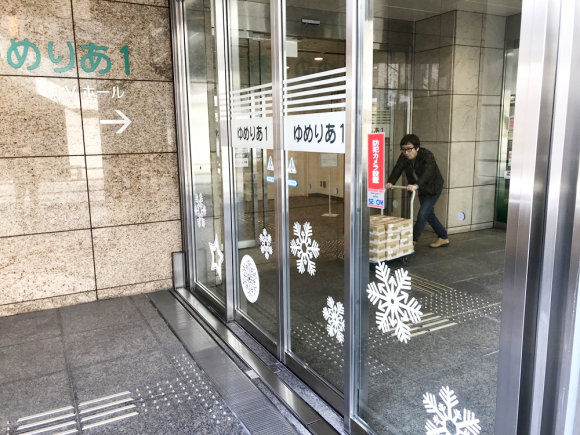
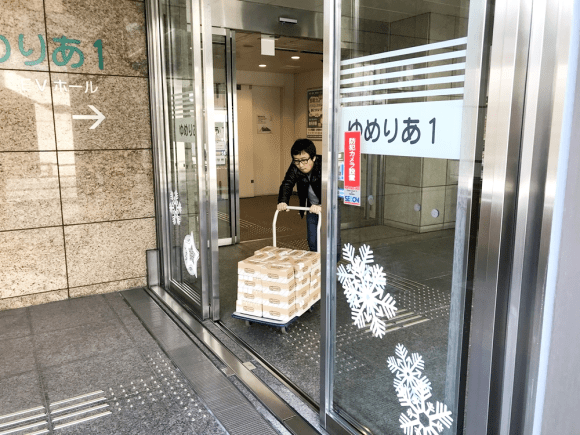
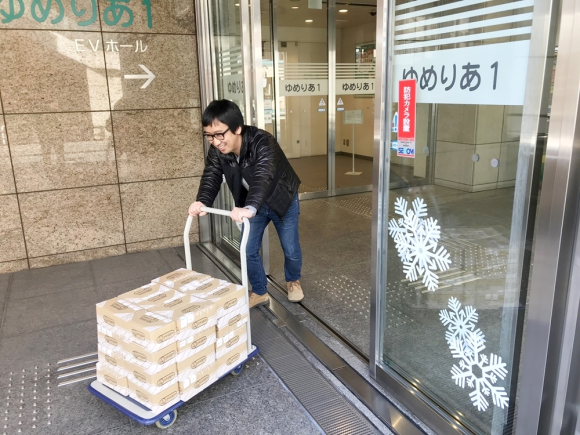
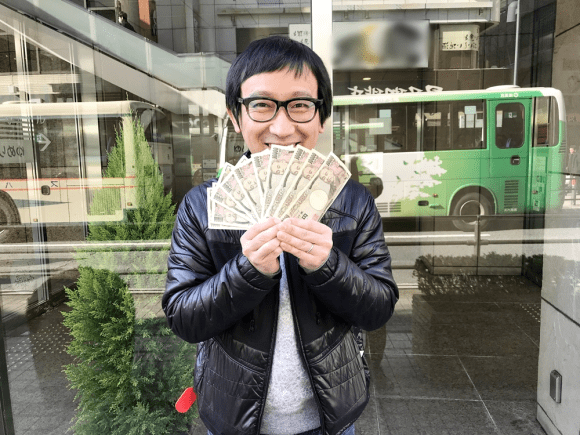
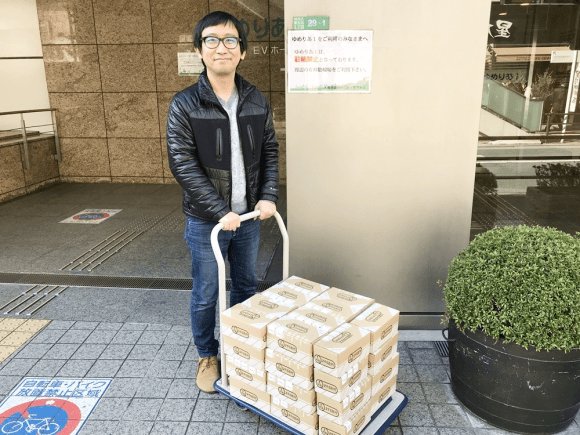
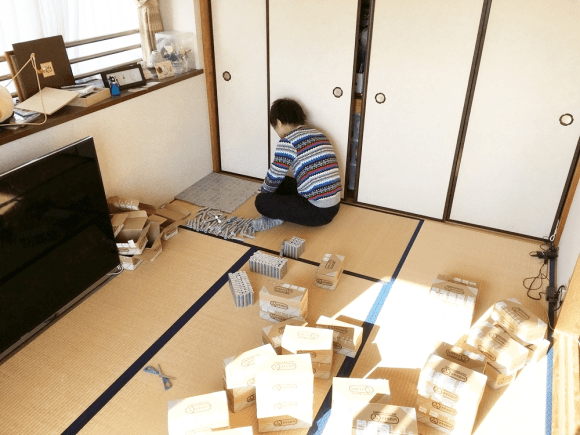

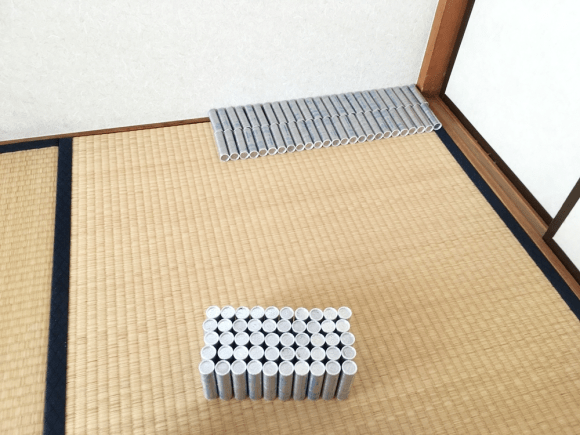
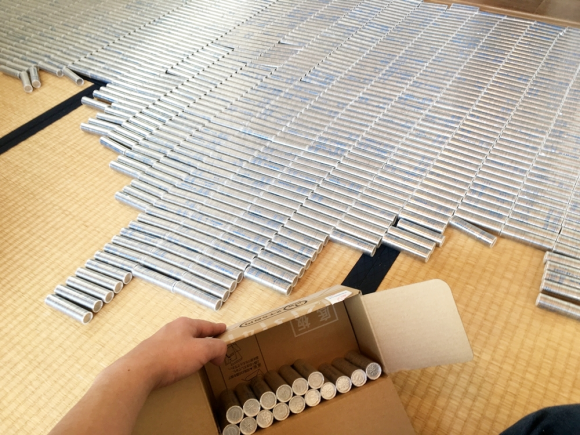
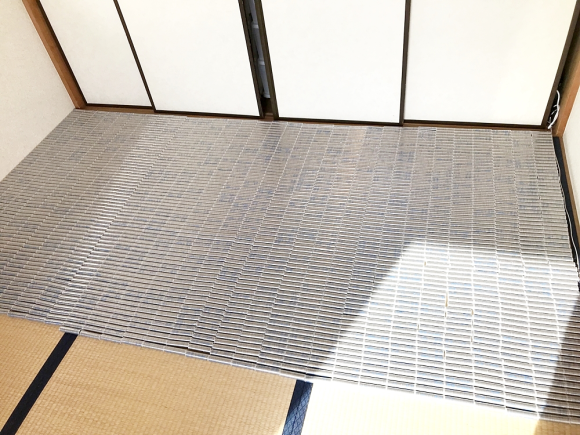


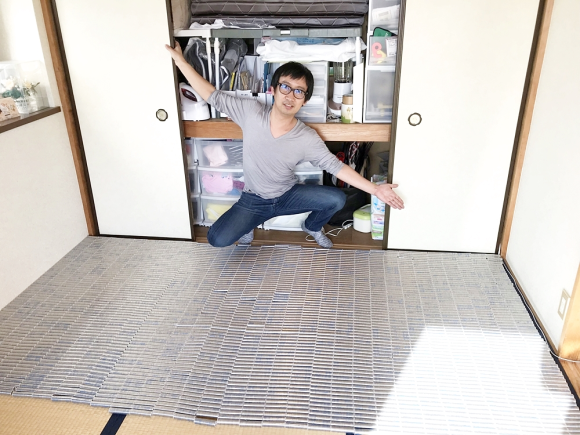
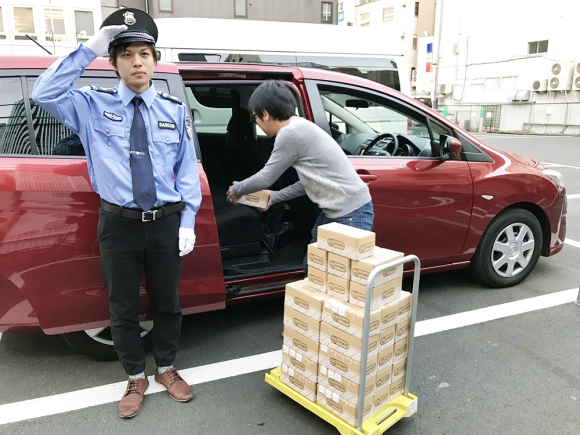
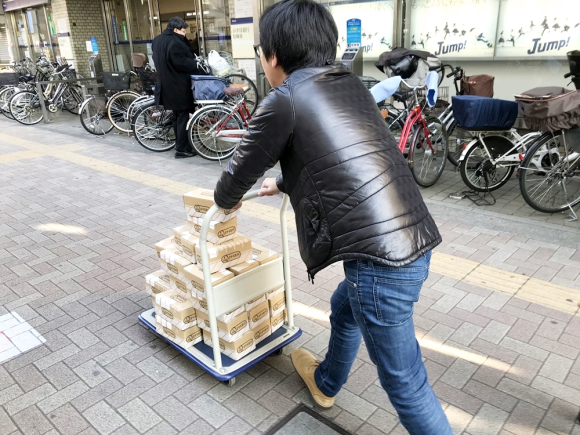
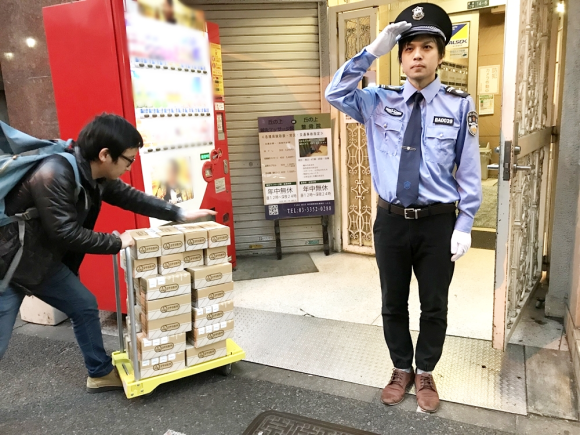
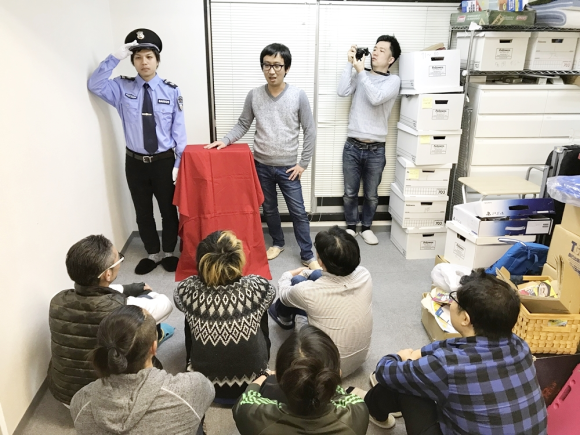
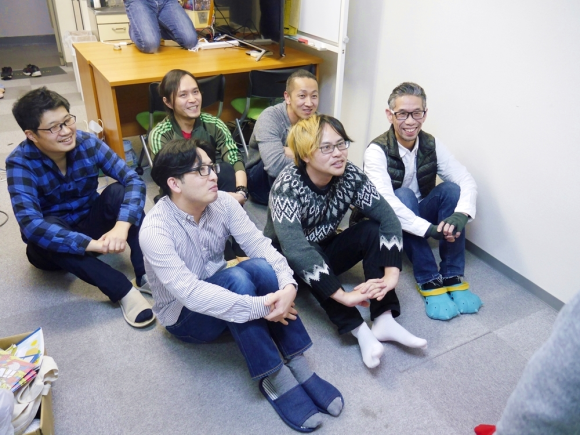
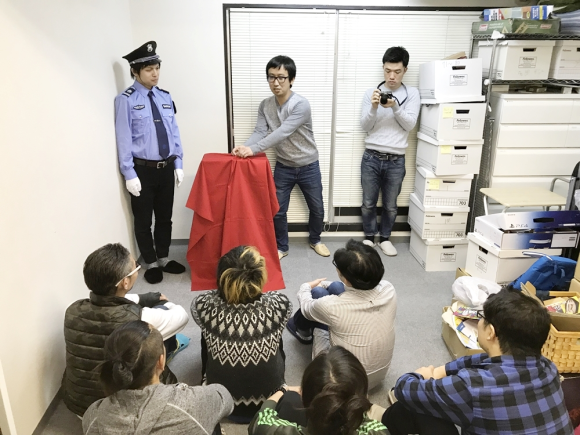
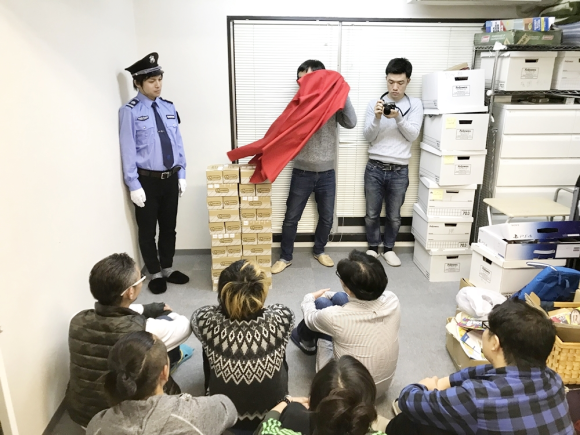
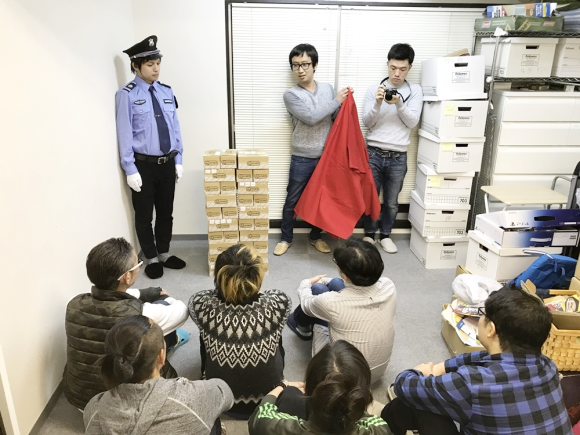
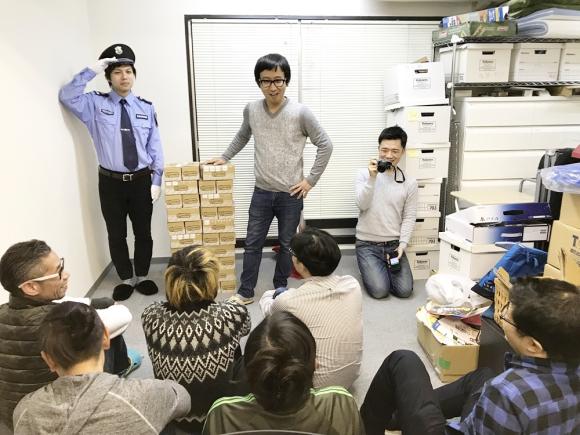
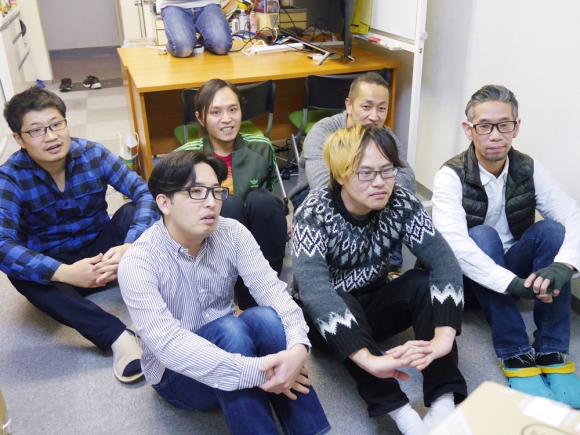
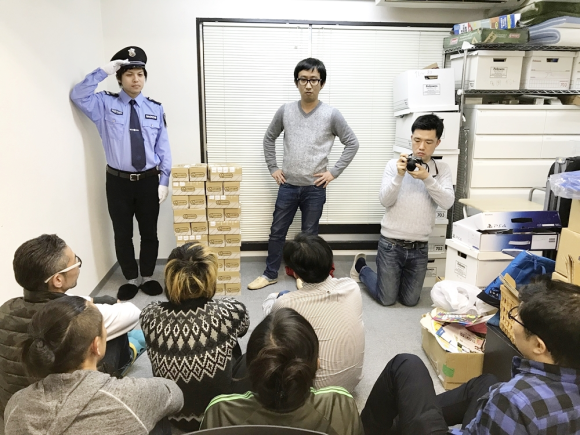
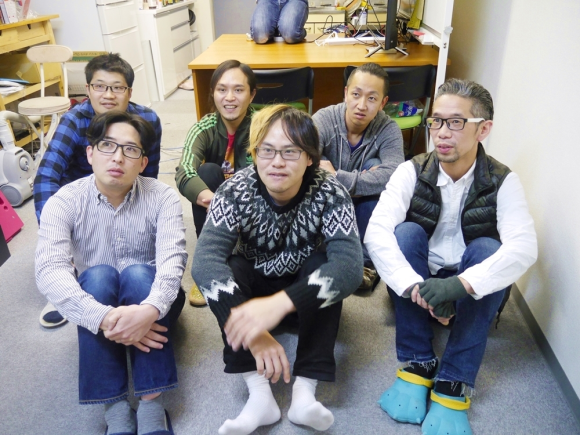
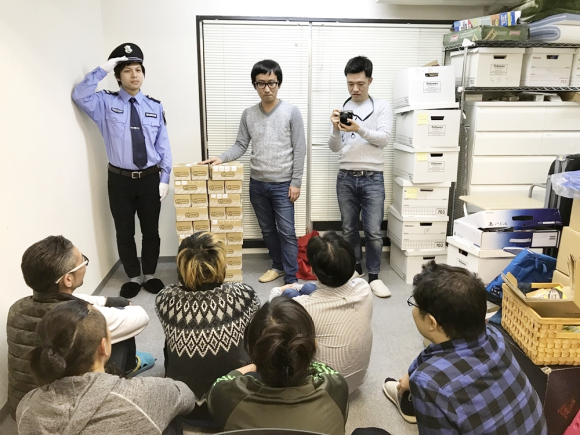
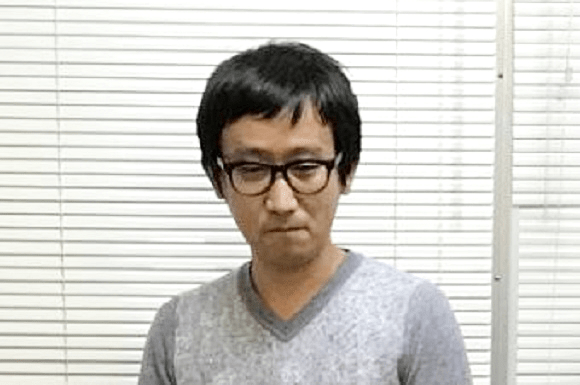
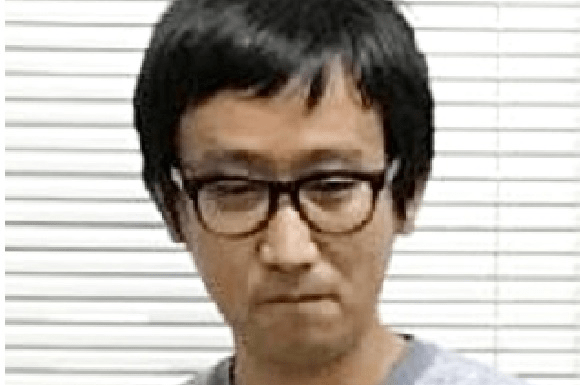
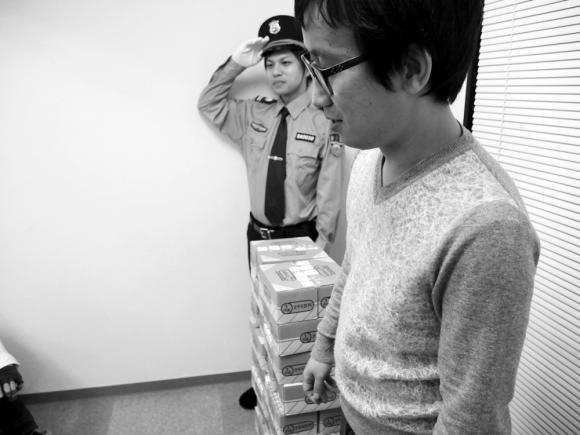
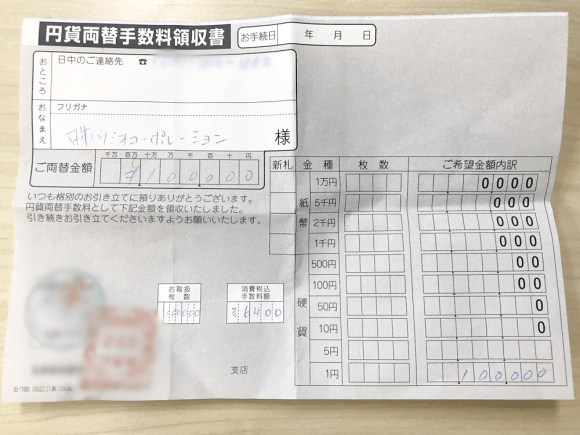
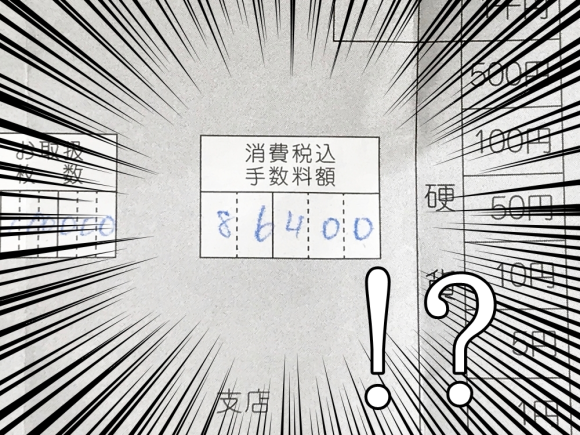
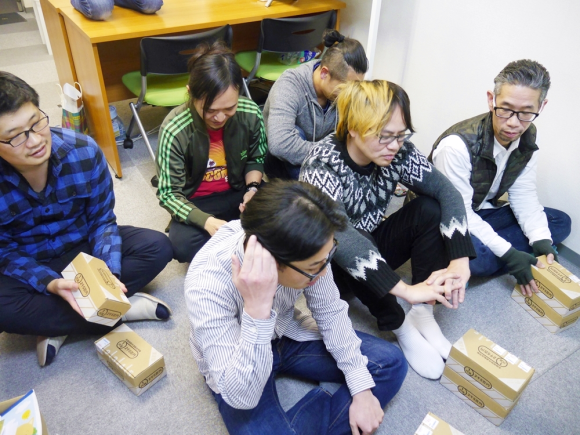
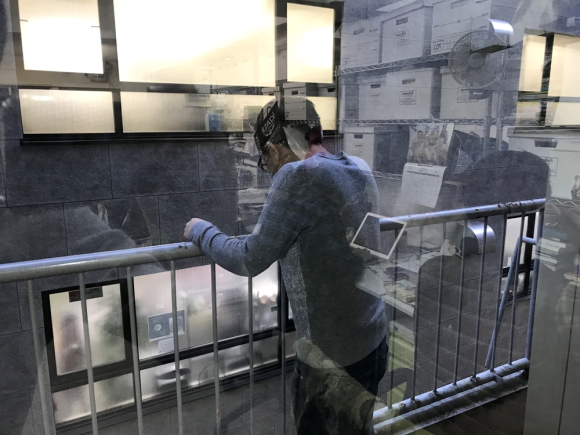
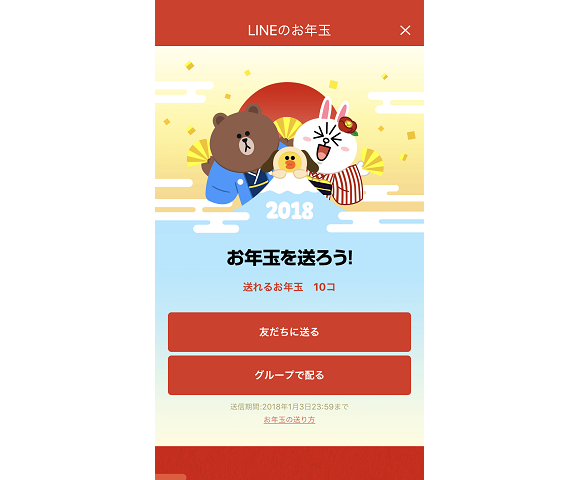
 How many rare coins are in our pile of 100,000 one-yen coins?
How many rare coins are in our pile of 100,000 one-yen coins? Why was the 2,000-yen bill left out of Japan’s yen redesign, and how does it feel about the snub?
Why was the 2,000-yen bill left out of Japan’s yen redesign, and how does it feel about the snub? How much should we give in a New Year’s otoshidama without looking like a jerk?
How much should we give in a New Year’s otoshidama without looking like a jerk? Is it possible to run up a 100,000-yen (US$885) bill at Tokyo’s cheapest Italian restaurant?
Is it possible to run up a 100,000-yen (US$885) bill at Tokyo’s cheapest Italian restaurant? Building this go-kart required a leaf blower, umbrella, and a WHOLE lot of Mr. Sato magic【Video】
Building this go-kart required a leaf blower, umbrella, and a WHOLE lot of Mr. Sato magic【Video】 Japanese restaurant chain serves Dragon Ball donuts and Senzu Beans this spring
Japanese restaurant chain serves Dragon Ball donuts and Senzu Beans this spring Which convenience store onigiri rice balls are the most popular? Survey reveals surprising results
Which convenience store onigiri rice balls are the most popular? Survey reveals surprising results Starbucks Japan releases first-ever Hinamatsuri Girls’ Day Frappuccino
Starbucks Japan releases first-ever Hinamatsuri Girls’ Day Frappuccino Japan’s craziest burger chain takes menchi katsu to new extreme levels
Japan’s craziest burger chain takes menchi katsu to new extreme levels Eevee returns to Japan’s famous Tokyo Banana, bundled with a cute tote bag
Eevee returns to Japan’s famous Tokyo Banana, bundled with a cute tote bag Cup Noodle Sodas: Culinary innovation or beverage abomination?
Cup Noodle Sodas: Culinary innovation or beverage abomination? We try the new Dom Dom Burger with a whole fried crab — best fast food near Sensoji temple
We try the new Dom Dom Burger with a whole fried crab — best fast food near Sensoji temple Foreign tourists in Japan will get free Shinkansen tickets to promote regional tourism
Foreign tourists in Japan will get free Shinkansen tickets to promote regional tourism Kyoto samurai house wants to share its history of seppuku, torture and gold coins with visitors
Kyoto samurai house wants to share its history of seppuku, torture and gold coins with visitors This gachapon capsule machine dispenses real Akoya pearls, with certificates of authenticity
This gachapon capsule machine dispenses real Akoya pearls, with certificates of authenticity Highest Starbucks in Japan set to open this spring in the Tokyo sky
Highest Starbucks in Japan set to open this spring in the Tokyo sky The 10 most annoying things foreign tourists do on Japanese trains, according to locals
The 10 most annoying things foreign tourists do on Japanese trains, according to locals Tokyo Skytree turns pink for the cherry blossom season
Tokyo Skytree turns pink for the cherry blossom season Yakuzen ramen restaurant in Tokyo is very different to a yakuza ramen restaurant
Yakuzen ramen restaurant in Tokyo is very different to a yakuza ramen restaurant Shibuya Station’s Hachiko Gate and Yamanote Line stairway locations change next month
Shibuya Station’s Hachiko Gate and Yamanote Line stairway locations change next month Starbucks Japan releases new sakura goods and drinkware for cherry blossom season 2026
Starbucks Japan releases new sakura goods and drinkware for cherry blossom season 2026 Starbucks Japan adds new sakura Frappuccino and cherry blossom drinks to the menu
Starbucks Japan adds new sakura Frappuccino and cherry blossom drinks to the menu Japan Extreme Budget Travel! A trip from Tokyo to Izumo for just 30,000 yen [Part 1]
Japan Extreme Budget Travel! A trip from Tokyo to Izumo for just 30,000 yen [Part 1] Japan’s new “Cunte” contact lenses aren’t pronounced like you’re probably thinking they are
Japan’s new “Cunte” contact lenses aren’t pronounced like you’re probably thinking they are Japan’s newest Shinkansen has no seats…or passengers [Video]
Japan’s newest Shinkansen has no seats…or passengers [Video] Foreigners accounting for over 80 percent of off-course skiers needing rescue in Japan’s Hokkaido
Foreigners accounting for over 80 percent of off-course skiers needing rescue in Japan’s Hokkaido Super-salty pizza sends six kids to the hospital in Japan, linguistics blamed
Super-salty pizza sends six kids to the hospital in Japan, linguistics blamed Starbucks Japan unveils new sakura Frappuccino for cherry blossom season 2026
Starbucks Japan unveils new sakura Frappuccino for cherry blossom season 2026 Take a trip to Japan’s Dododo Land, the most irritating place on Earth
Take a trip to Japan’s Dododo Land, the most irritating place on Earth Naruto and Converse team up for new line of shinobi sneakers[Photos]
Naruto and Converse team up for new line of shinobi sneakers[Photos] Is China’s don’t-go-to-Japan warning affecting the lines at a popular Tokyo gyukatsu restaurant?
Is China’s don’t-go-to-Japan warning affecting the lines at a popular Tokyo gyukatsu restaurant? Survey asks foreign tourists what bothered them in Japan, more than half gave same answer
Survey asks foreign tourists what bothered them in Japan, more than half gave same answer Japan’s human washing machines will go on sale to general public, demos to be held in Tokyo
Japan’s human washing machines will go on sale to general public, demos to be held in Tokyo Starbucks Japan releases new drinkware and goods for Valentine’s Day
Starbucks Japan releases new drinkware and goods for Valentine’s Day We deeply regret going into this tunnel on our walk in the mountains of Japan
We deeply regret going into this tunnel on our walk in the mountains of Japan Studio Ghibli releases Kodama forest spirits from Princess Mononoke to light up your home
Studio Ghibli releases Kodama forest spirits from Princess Mononoke to light up your home Major Japanese hotel chain says reservations via overseas booking sites may not be valid
Major Japanese hotel chain says reservations via overseas booking sites may not be valid Put sesame oil in your coffee? Japanese maker says it’s the best way to start your day【Taste test】
Put sesame oil in your coffee? Japanese maker says it’s the best way to start your day【Taste test】 No more using real katana for tourism activities, Japan’s National Police Agency says
No more using real katana for tourism activities, Japan’s National Police Agency says Can a dirty butthole make you filthy rich in Japan? We’re starting a New Year’s lottery experiment
Can a dirty butthole make you filthy rich in Japan? We’re starting a New Year’s lottery experiment We coordinate a head-to-toe look for just 1,000 yen
We coordinate a head-to-toe look for just 1,000 yen Osaka Expo 1,000-yen coins go on sale for the low price of 13,800 yen
Osaka Expo 1,000-yen coins go on sale for the low price of 13,800 yen Japanese high court reaches verdict on if late-pizza-delivery trauma is worth 100,000 yen
Japanese high court reaches verdict on if late-pizza-delivery trauma is worth 100,000 yen The results are in from our one million-yen stack of Japanese lottery tickets! So, are we rich?
The results are in from our one million-yen stack of Japanese lottery tickets! So, are we rich? Japan’s 100 yen stores have canned energy drink cocktails for under a buck, so we tried one
Japan’s 100 yen stores have canned energy drink cocktails for under a buck, so we tried one How to make a McDonald’s hamburger twice as delicious: Turn it into a waffle!【SoraKitchen】
How to make a McDonald’s hamburger twice as delicious: Turn it into a waffle!【SoraKitchen】 We dare Tokyo’s pigeons to crap on us because we think it’ll make us rich【Experiment】
We dare Tokyo’s pigeons to crap on us because we think it’ll make us rich【Experiment】 Japanese hospital worker tweets about receiving temporary 100,000 yen bonus for economic reasons
Japanese hospital worker tweets about receiving temporary 100,000 yen bonus for economic reasons We spent over US$400 at a Tokyo premium capsule machine, and we’re not sure how we feel about it
We spent over US$400 at a Tokyo premium capsule machine, and we’re not sure how we feel about it This is what a million yen of lottery tickets looks like, and a secret that’ll make us rich【Pics】
This is what a million yen of lottery tickets looks like, and a secret that’ll make us rich【Pics】 Can one man blow 10,000 yen at Tokyo’s cheapest Italian restaurant? The human otter finds out
Can one man blow 10,000 yen at Tokyo’s cheapest Italian restaurant? The human otter finds out Tokyo hotel’s 100,000-yen (US$900) hamburger is topped with a wagyu steak to honor new emperor
Tokyo hotel’s 100,000-yen (US$900) hamburger is topped with a wagyu steak to honor new emperor Man counterfeits 50,000 yen using only a 100-yen shop, a convenience store, and a Japanese custom
Man counterfeits 50,000 yen using only a 100-yen shop, a convenience store, and a Japanese custom Mr. Sato makes senpafe 1,000-yen parfait, and things get oddly violent【Japan’s Best Home Senpafe】
Mr. Sato makes senpafe 1,000-yen parfait, and things get oddly violent【Japan’s Best Home Senpafe】